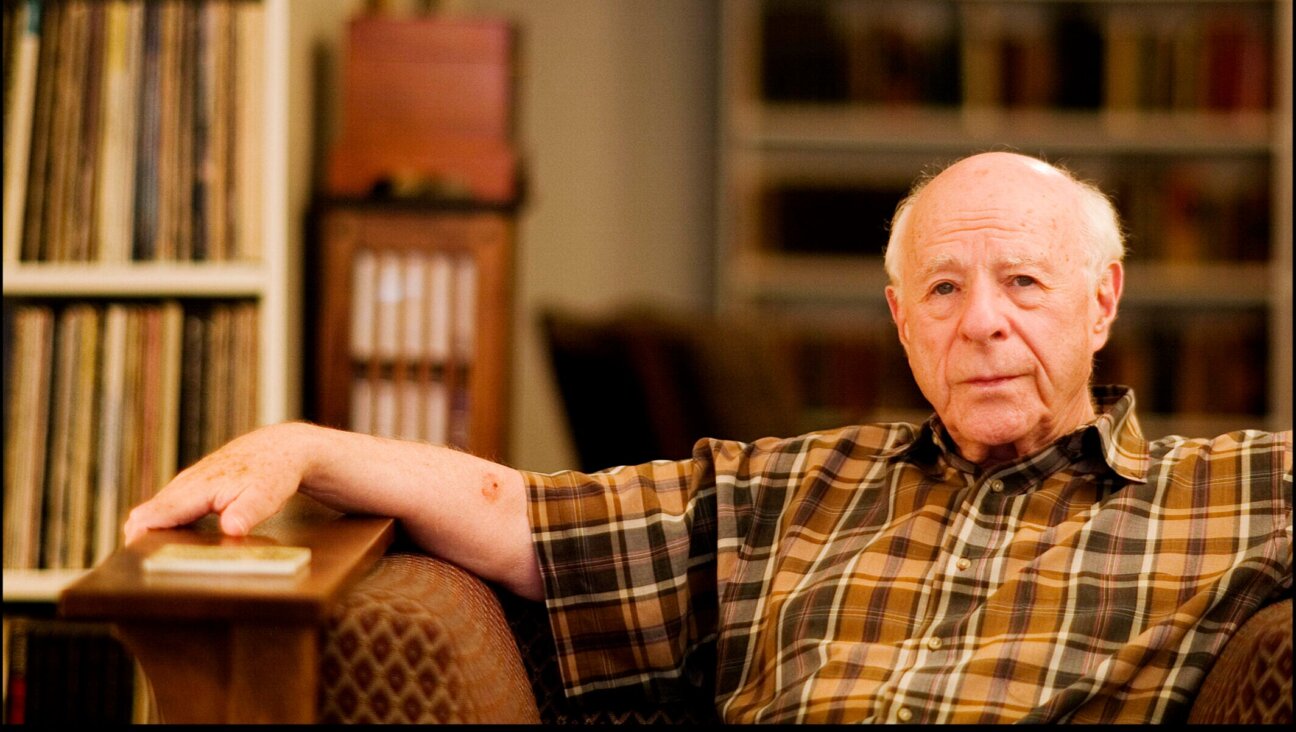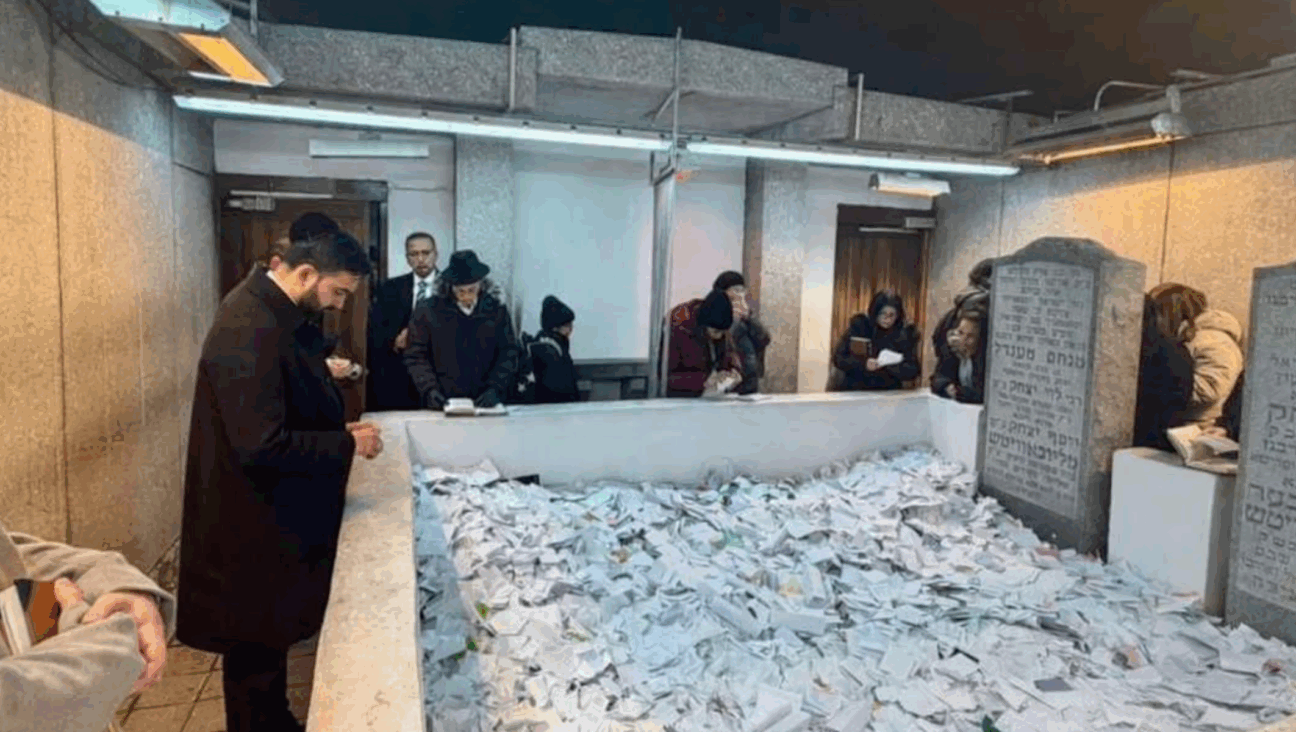Have Republican Jews Reached Their Breaking Point With Trump?

Donald Trump addressing the Republican Jewish Coalition Image by Getty Images
Some of President Trump’s staunchest supporters in the Jewish community may have had enough.
Trump’s Tuesday afternoon rant — in which he claimed that there were some “fine people” in the crowd of white supremacists who chanted anti-Semitic slogans in Charlottesville, Virgnia, and equated the “alt-right” and neo-Nazi marchers with counter-protesters who came to oppose them — led some of the president’s most prominent Jewish backers to draw a red line.
The Republican Jewish Coalition, a mainstream Jewish GOP body funded primarily by Las Vegas casino billionaire Sheldon Adelson, issued a statement Wednesday afternoon saying that the group “join[s] with our political and religious brethren in calling upon President Trump to provide greater moral clarity in rejecting racism, bigotry, and antisemitism.”
The RJC’s language may sound moderate in its tone, especially compared to other condemnations of Trump flowing in from across the political spectrum. But for the RJC — which has defended Trump ever since he became the Republican nominee last year, even when the Jewish communal consensus leaned toward criticism — the statement marks a shift.
“I’m proud of the RJC for standing up for what’s right for our community and right for America,” said Fred Zeidman, a Houston Republican donor who is a member of the RJC’s board.
The statement came almost 24 hours after Trump placed the blame for the Charlottesville carnage on two sides: the white supremacists and what he described as the “alt-left.” In the ensuing time period, the RJC initially chose to state its own rejection of racists groups involved in the demonstration, without directly addressing Trump’s comments. But as the media uproar intensified and the anti-Semitic tenor of the demonstration became undeniable, the RJC adopted a stronger, and unmistakably critical, tone.
“The Nazis, the KKK and white supremacists are dangerous anti-Semites. There are no good Nazis and no good members of the Klan,” the group said, hinting at Trump’s claim that among the right-wing extremists in Charlottesville were also some “fine people” who merely took issue with the removal of a statue of Confederate general Robert E. Lee. “As representatives of the party whose founder, Abraham Lincoln, broke the shackles of slavery, and of an organization with many members who experienced firsthand the inhumanity of the Nazi Holocaust, we state unequivocally our rejection of these hate mongers — you can expect no less from the Republican Jewish Coalition.”
Other Jewish Republicans have taken a much more cautious approach, choosing to focus on denouncing white supremacists and anti-Semites while sidestepping the question of whether Trump’s comments emboldened these hate groups and legitimized their arguments.
The Zionist Organization of America, a right-wing organization also funded by Adelson, issued a strong statement declaring that it was “sickened, revolted by, and strongly condemns, the neo-Nazi, white supremacist violence that rocked Charlottesville, Virginia.” But it stopped short of any direct reference to Trump’s comments. Furthermore, the group, seemingly echoing Trump’s narrative, also condemned the counter-protesters, stating that while “nothing justifies violence and terrorism and the neo-Nazi white supremacists involved in the violence, it would be factually incorrect to deny that vicious, hate-filled extremists feed off each other and welcome civil disorder and chaos.”
On the political level, elected Jewish Republicans have also chosen to avoid a clash with the president. New York Rep. Lee Zeldin, one of only two Jewish Republicans in Congress, sought to defend Trump’s claim about the role left-wing demonstrators played in the Charlottesville events. The other Jewish GOP representative, David Kustoff of Tennessee, denounced the hate groups involved in the events, but when asked directly about Trump’s comments, he replied: “This country is an incredible melting pot, and the hatred promulgated by some of these groups is repulsive.”
Ohio state treasurer Josh Mandel, who is running for Senate next year, said in a statement sent to the Forward that he strongly condemns “violence, bigotry and Nazism” and that such evil has no place in America. “Hundreds of thousands of young Americans paid the ultimate sacrifice in World War II so our children would never have to see the evil of Nazism,” said Mandel, who is an outspoken supporter of Trump. He would not comment on the president’s depiction of the Charlottesville events.
As for the future of their relations with the Trump White House and the GOP, several Jewish activists said they expect no long-term change. “Trump was never our first choice, and he has done nothing to change our mind,” one GOP Jewish insider said. Another Jewish Republican noted that despite the outrage, there will be no move to challenge Trump actively. “You’ve got to keep an open door,” he said, referring to the need to maintain White House access. Both asked not to be identified in order to speak freely about internal political issues.
Contact Nathan Guttman at [email protected] or on Twitter, @nathanguttman















